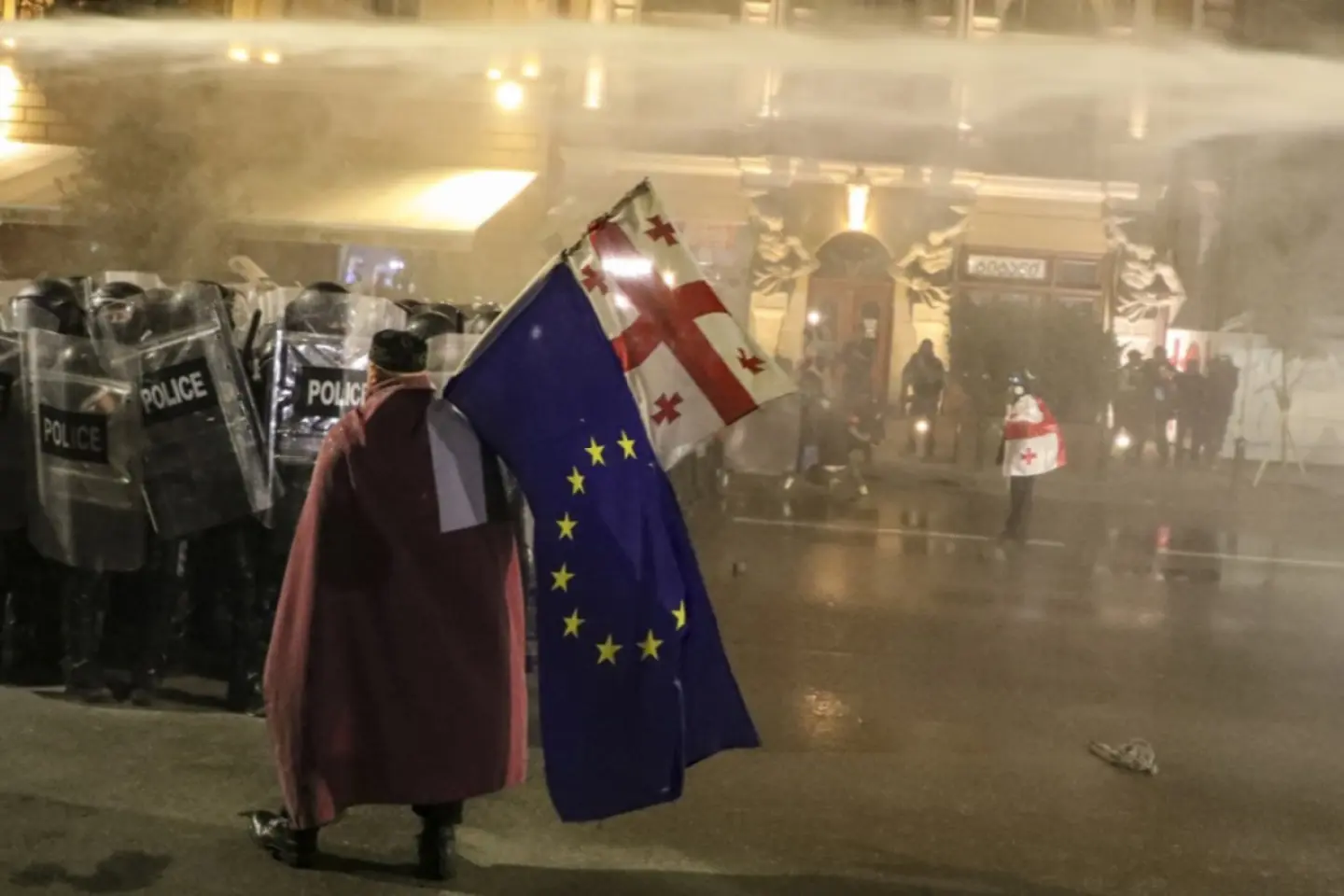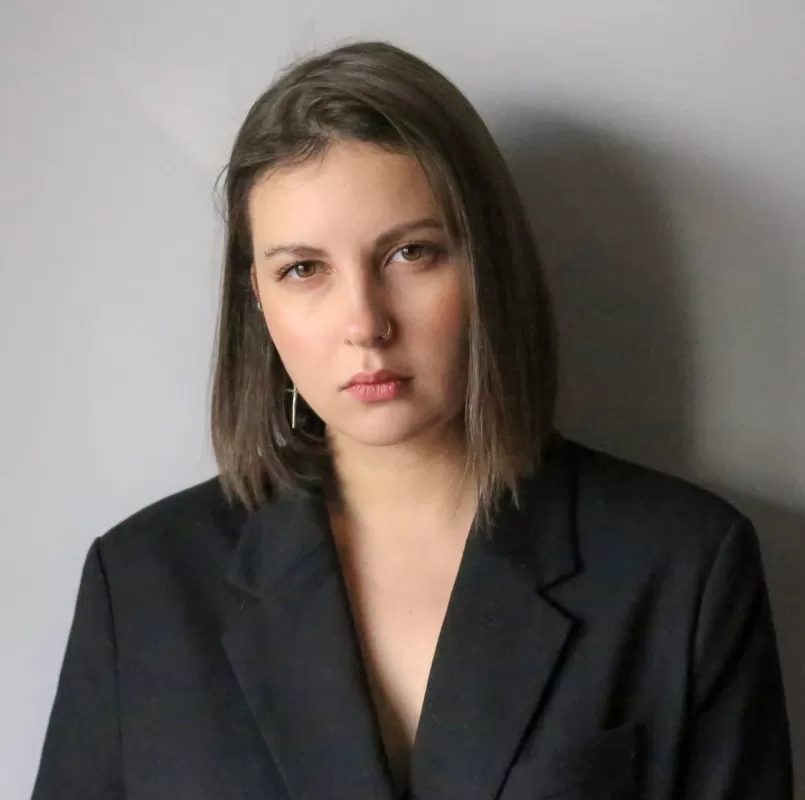
The ruling Georgian Dream party won, by a landslide, yet another round of elections in Georgia. On October the 4’th local elections, the party emerged victorious in every Georgian municipality. However, it was a rather hollow victory, as the elections were boycotted by the two main opposition blocs. They, together with Georgia’s civil society and a considerable part of the population felt that the elections could not be free nor fair. They pointed, before the vote, to the lack of international observers, the arrest campaign targeting a number of opposition officials and activists, and the sharp deterioration of Georgia’s relationship with both the EU the US, caused by the increasing anti-Western rhetoric of the ruling party, and the democratic backsliding of the country.
The elections took place against the backdrop of a tense political situation. Since the October 2024 parliamentary elections, also won by the Georgian Dream, the country had been rocked by a wave of protests, first triggered by allegations of fraud in the elections, and then amplified by the government’s decision to put on hold the EU integration process. Controversial laws, such as a Russian-inspired foreign agents bill which opponents claim it was aimed at civil society and the free media, had been passed. Opposition officials had been arrested and/or sent to trial. The opposition, as a whole, continued to be fragmented, unable to find common grounds – it failed to get to a consensus even on whether to boycott the local elections or not, with some choosing to participate.
Opposition Split: Boycott or Participation
In the municipal elections held in Georgia on October 4, the ruling party Georgian Dream won by a significant margin. According to the Central Election Commission, it received more than 81% of the votes. However, voter turnout was at a record low — around 40% (almost 1.5 million people). In the previous elections, turnout was nearly 52%.
The results of the municipal elections in Georgia were quite predictable, as most of the major opposition parties refused to participate in the vote.
The question of whether to participate in the elections was one of the main reasons for a deep split in the opposition camp. Eight pro-Western parties — among them the United National Movement, Ahali, European Georgia, Girchi – More Freedom, and Droa! — announced a boycott of the vote back on June 29. They argued that participation would only legitimize the Georgian Dream regime and weaken the protest movement. Two other opposition parties — “Gakharia for Georgia”, and “Lelo - Strong Georgia” — decided to run, viewing the elections as an opportunity to prepare the ground for early parliamentary elections. This step sparked sharp criticism from the boycotting parties. Some called it “betrayal,” while others argued that participation would only strengthen the government.
The leader of the “Gakharia for Georgia” party, Giorgi Gakharia — a former prime-minister in a Georgian Dream government — is currently in Germany, as a criminal case has been opened against him in Georgia. The party’s gamble to run in the elections didn’t pay off: Gakharia for Georgia came in third, but it only got 3.7% of the vote, according to the results published by the Central Election Commission.
The “Lelo” party, led by former bankers Mamuka Khazaradze and Badri Japaridze, was also created amid government persecution. Khazaradze and Japaridze were arrested for failing to appear before a parliamentary commission in late June, but after the party’s participation in the municipal elections was confirmed, President Mikheil Kavelashvili pardoned them. Lelo’s result in the elections was only slightly better than that of Gakharia’s party – just 6.7% of the votes nationwide.
Experts noted that Georgian Dream was interested in the opposition’s participation in the elections, trying to demonstrate their legitimacy and create the impression in the West that there is real competition in the elections.
Repressions and Criminal Cases
The elections were also notable for being held amid a large-scale campaign of repression against the opposition. Most key leaders, ahead of the vote, are either in prison or under threat of arrest.
In recent months, the court sentenced Mamuka Khazaradze and Badri Japaridze (“Lelo”), Zurab Japaridze (“Girchi – More Freedom”), Giorgi Vashadze (“Strategy Agmashenebeli”), Nika Melia and Nika Gvaramia (“Coalition for Change”), former Defense Minister Irakli Okruashvili, and former MP Givi Targamadze to actual prison terms. They were punished for refusing to appear before a temporary parliamentary investigative commission set up at the initiative of Georgian Dream to investigate the activities of the United National Movement. All were also banned from holding public office for two years.
Former Prime Minister Giorgi Gakharia did appear before the commission — first in person and then online. However, a case was opened against him over events in the village of Chorchana on the South Ossetian occupation line.
The most high-profile case was that of Elene Khoshtaria, leader of the Droa party. She was detained in September after writing “Russian Dream” on Kakha Kaladze’s campaign banner. Human rights defenders described this as “another act of abuse of criminal prosecution,” as such actions are punishable administratively.
Shortly before Khoshtaria’s arrest, another opposition leader — Levan Khabeishvili of the United National Movement — was imprisoned, accused of attempting to “bribe security forces” to refuse to disperse demonstrators.
The Battle for Tbilisi
The main political battle unfolded in Georgia’s capital, Tbilisi, where the incumbent mayor and candidate from the ruling Georgian Dream party, Kakha Kaladze, secured another victory. A former football player, Kaladze has held the mayor’s office since 2017, and in this election he managed to secure a third consecutive term without much difficulty. According to the Central Election Commission, Kaladze received 71.5% of the vote (214,872 votes), one of the highest results among all municipalities in the country.
His main and practically only serious challenger was the joint candidate of two opposition parties — Lelo – Strong Georgia and Gakharia – For Georgia — 31-year-old lawyer and activist Irakli Kupradze. “We need to tear Tbilisi away from Georgian Dream,” Kupradze declared during the campaign. Despite bold statements of support and predictions of his own victory with more than 70%, Kupradze only managed to win only 12.43% of the votes.
The election campaign in Tbilisi saw clashes between activists, police intervention, and attacks on journalists.
International Observers and the West’s Reaction
It is also noteworthy that initially the Georgian authorities did not plan to invite the OSCE/ODIHR mission — a key international institution for election observation. Only a few weeks before the vote was the invitation finally sent, but the organization declined, citing the impossibility of preparing a mission in such a short timeframe.
In July, the European Parliament adopted a resolution stating that the upcoming elections cannot be considered free and fair due to the arrests of opposition figures and the lack of conditions for fair competition.
This step has further deepened the Georgian government’s isolation on the international stage and cast doubt on the recognition of the election results.
After the elections, the EU High Representative for Foreign Affairs Kaja Kallas, and the Commissioner for Enlargement, Neighborhood, and Ukraine Recovery Marta Kos, accused the ruling party, in a joint statement released on October the 5th, of creating conditions that “severely limited the possibility of holding fair elections.” According to Kallas and Kos, the vote took place “under conditions of comprehensive repression” against the opposition.
At the same time, Kallas and Kos called on the Georgian authorities, and on participants of potential new mass protests to “remain calm and exercise restraint.” They also stressed the need to respect citizens’ rights to freedom of assembly and freedom of expression.
The failed "revolution", and the alleged attempted coup d'état
Before the elections, there were calls for a massive protest, with two to three hundred thousand participants, to be held in Tbilisi on elections day, the goal being a “peaceful overthrow of power”.
The protest on October 4 has no specific organizer, but several people are particularly active, including opera singer Paata Burchuladze, or Levan Khabeishvili, a former chairman of the country’s largest opposition party, the United National Movement. No specific “power change” plan had been disclosed before the protest, which was supposed to be peaceful, with no violent actions from the protesters. That protest too failed to rally the support of the whole opposition: some politicians felt that “revolutions cannot be announced” and warned of the danger of unrealistic expectations. As for the ruling Georgian Dream, they dismissed the protest as irrelevant, saying that the opposition does not have enough influence or resources for a rally that would lead to a change of power. Prime Minister Irakli Kobakhidze did warn against violations of the law saying that “the announced revolution will not be successful, but more people could end up behind bars than last time.” At the same time, pro-government media wrote that the protest would be coordinated from abroad, even accusing Ukraine of involvement.
On election day, large-scale protests indeed took place in Georgia’s capital. Protesters gathered in Freedom Square, and the rally initially remained peaceful. However, the situation escalated sharply when part of the demonstrators, at the organizers’ call, marched toward the presidential palace. Before that, a declaration of the so-called “national assembly” — as the organizers called the October 4 gathering — was read from the stage, proclaiming the transfer of power to the Georgian people.
Clashes between protesters and law enforcement officers began when part of the crowd tore down the presidential palace gates and broke into the compound. The riot police used water cannons and tear gas to disperse the demonstrators. The attempt to seize the presidential building failed, causing significant frustration among participants. According to the Georgian Ministry of Health, 21 police officers and 6 demonstrators were injured during the clashes.
Prime Minister Irakli Kobakhidze described the unrest as an attempted coup and claimed the involvement of foreign intelligence services. “The attempt to overthrow the government has failed,” he declared. In this context, he spoke again about the ruling party’s plans to ban former president Mikheil Saakashvili’s United National Movement and several other opposition groups.
The attempt to storm the building was also condemned by Georgia’s former president, Salome Zourabishvili, who had previously supported peaceful protests.
“This attempt to seize the presidential palace could only have been staged by the regime itself in order to discredit the 310-day-long peaceful protest of the Georgian people. As the legitimate president, I officially deny it and will continue to stand peacefully alongside my people until we win the next elections,” she wrote on X.
Similar statements were made by representatives of the opposition parties “Lelo” and “For Georgia,” which participated in the elections.
Late on the night of October 4, as the protest began to subside, a police operation was launched to detain members of the organizing committee — Paata Burchuladze, Murtaz Zodelava, Irakli Nadiradze, Paata Manjgaladze, and Lasha Beridze. They were charged with inciting violent change of the constitutional order, organizing and leading mass unrest. According to the Ministry of Internal Affairs, they face up to nine years in prison.
Furthermore, on October 5, Georgia’s State Security Service announced that it had discovered a large cache of firearms, ammunition, and explosives with detonators, allegedly intended for use on October 4 in connection with the attempted storming of the presidential palace. A criminal case was opened under Article 236, Part 3 of the Georgian Criminal Code — illegal acquisition or possession of firearms, ammunition, or explosive devices.
The authorities warned that any gatherings in the coming days would be treated as a continuation of the attempted coup. In this regard, they announced their intention to take “all necessary measures” to maintain public order and security. This means that the continuous protests, which have been ongoing in Georgia’s capital for more than 300 days, could now be declared illegal.


